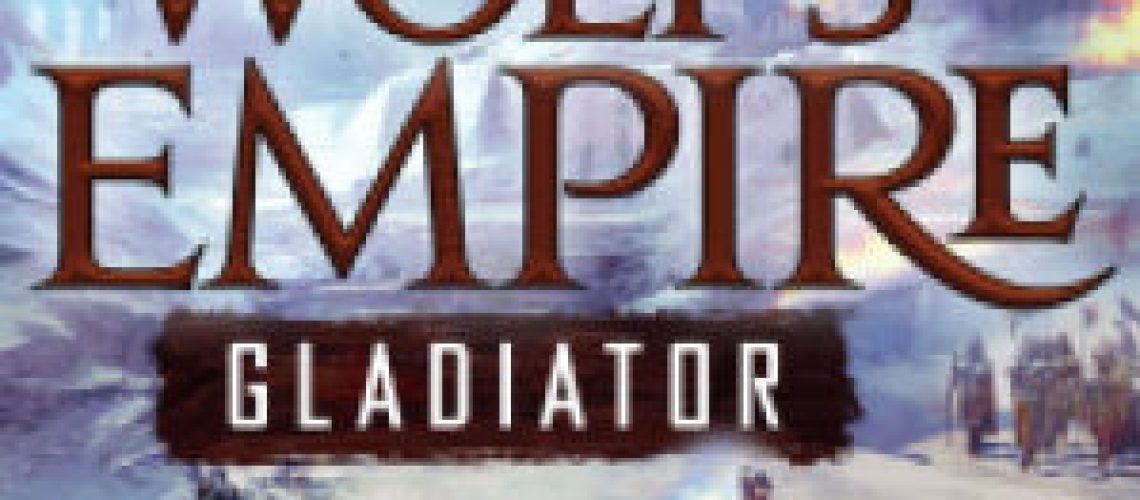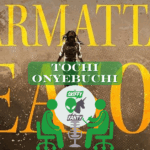My love and abiding interest of things revolving around Ancient Rome are absolutely no secret to anyone who knows me even to a slight degree. I’m that kind of person who took a long bus ride while in Rome just so I could get to a point on the Via Appia, the highway that connected Rome to points south in Italy, so I could stand on it, walk on it for a short bit, and imagine the history I had experienced, on top of all of the other ancient ruins I had already explored. I’ve been reading space opera since the earliest days of my genre reading, devouring the likes of DUNE and Cherryh’s Chanur novels through today’s space opera writers ranging from Alastair Reynolds to Rhonda Mason.
This “peanut butter and chocolate” of my interests comes together in WOLF’S EMPIRE: GLADIATOR, the first novel in collaboration between Claudia Christian (who many readers may recognize as being a star of Babylon 5) and Morgan Grant Buchanan. As I mentioned in last week’s interview, both have collaborated before, notably on Ms. Christian’s memoir, but this marks a significant change in their literary ambitions.

This is not the first time an actor from the television show Babylon 5 has collaborated on a novel. In the nineties, Peter Jurasik collaborated on DIPLOMATIC ACT, a novel which posited (before the movie ever came out) a Galaxy Quest-like scenario where the actor protagonist was thought to be an actual diplomat, and asked to mediate an interstellar dispute. Unlike that novel, however, Ms. Christian and Mr. Buchanan chose not to explicitly model the protagonist after Ms. Christian’s most famous role, although there are notes of Commander Ivanova in Accala Viridius Camilla, our protagonist, our heroine. Accala is the scion of a noble House of a Roman Empire that indeed, never fell, and instead conquered the entire Earth and smoothly went to do the same to the galaxy. I amused myself trying to figure out the point of divergence. It’s a still polytheistic Roman empire with no mention of Christianity. I wonder if, like Robert Silverberg’s Roma Eterna, that was a point of divergence, following the Gibbonian idea that Christianity was in the end a negative force for the longevity of the Roman Empire and that without it, the Empire would prosper longer.
The structure of the novel is a look backward from events that have occurred, with the novel’s prologue as an invocation to the Muses in classic Roman literary form. The prologue sets our time frame, about 7000 AD (although the dates are in AUC, Anno Urbe Condita, which is the classic form that Roman dates gave — dating back to the founding of Rome), and tells us right away about the central conflict and what Accala is trying to do. There are classical notes and motifs throughout the text. Accala’s cognomen, Camilla, for example, is a hearkening back to a very appropriate antecedent character in the Aeneid.
After the prologue, the novel focuses on an intimate first person point of view of Accala’s story. And what a story. Galactic Civil War in the making, conflict between Houses, schemes and power plays. It does give the novel something of a Game of Thrones sort of overlay to the Roman template. Given the logistical problems that an autocracy would have managing in an entire galaxy, the additional layer of noble bureaucracy seems like a logical extension of the Roman system, or a recapitulation of the early Republic system into the Empire system. Oh, and above all that, Accala’s story, and the story of the novel, is a quest for vengeance and justice for her murdered mother and brother. In a Rome that is extremely patriarchial, and her father disapproving strongly of his daughter’s plans, the lines of love and duty, honor, obedience, vengeance and more are winningly explored. Accala’s journey is often a difficult one, with tough decisions, triumphs, reversals and a rich tapestry of a story along the way.
The action beats, though, are where the novel sings and Accala’s story, already interesting, comes to high gear. This is fortunate, given Accala’s need and desire to become a gladiator as part of her campaign of vengeance against those who have wronged House Viridian and murdered her family. Just what would high tech futuristic gladiatorial games in a Roman state be like? The authors give an answer, and it’s a compelling and entertaining one. Rather than an endless series of similar battles, there are a variety of challenges, especially once the action moves to Olympus Decimus for the games that Accala has fought and sacrificed so much to be a part of. Succeeding and even surviving these challenges and games, then are central to her quest for vengeance. From fighting hordes of natives to a race across an alien landscape, the action is clear, well drawn and entertaining.
Accala’s outsider status, as a noblewoman, who by most rights and by the cultural mores of the Empire should not be out there, gives the reader an outside perspective to see just what happens when a trained athlete is put into a kill or be killed sort of scenario, with the honor of her House, her quest for vengeance, and the future of the Empire on the line. I particularly liked Orbis, Accala’s unique and signature discus weapon. The writers invest personality into the weapon, as well as lovingly describing how a barbarian’s weapon, from outside the Empire, works. Every hero needs a weapon, and Orbis is worthy of Accala’s hand.
The novel was entertaining, well paced with action, and very strong on the protagonist’s inner story. I enjoyed it and would read more collaborations between the authors, either continuing Accala’s story (obvious sequel hooks are set in the denouement), or other worlds. You can read more about the book in my interview with Morgan and Claudia, here at Skiffy and Fanty.







